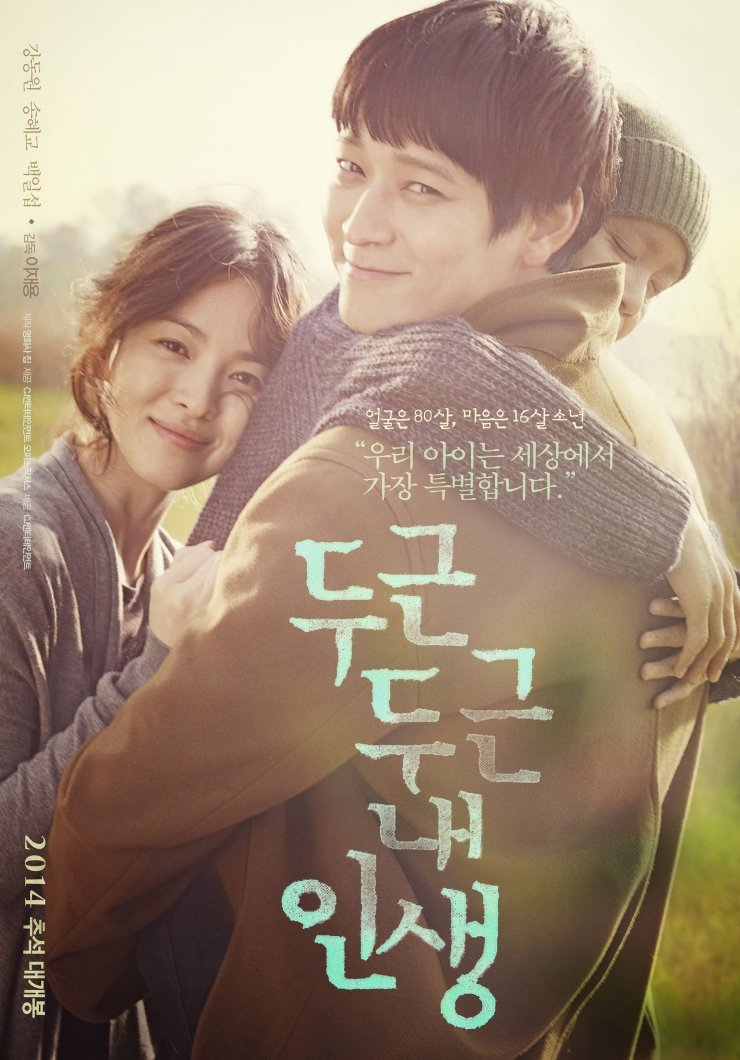My Brilliant Life: A Book Review
Graphic by Libbe Phan
What would you do if you knew you were going to die young? Would you constantly fret over the inevitable? Would you revel in every moment of the day? Or would you take the limited time left to learn about your parents and their lives? Areum, the protagonist of Ae-ran Kim’s debut novel My Brilliant Life, chooses the latter. As a last gift to his parents before he passes, he wishes to write a novel about their love story.
Originally published in Korean in 2011, My Brilliant Life only became available in English in 2020. However, since its original publication, the novel has gained tremendous popularity in South Korea. It has sold half a million copies and been made into both a film and a play of the same name.
The novel follows Areum, a teenager with progeria, a rare disease that causes rapid aging and has no known cure. Because of this, Areum is described as a teenager in an 80-year-old’s body. While the premise of a terminally ill protagonist may sound depressing, My Brilliant Life is actually not all doom and gloom. It’s a philosophical and thoughtful look at how age and time work both together and occasionally separately. It questions what it means to be human and why we measure humanity in the ways that we do.
My Brilliant Life establishes that Areum has a lot of reasons to be unhappy. From day one, his life is hard. He’s born to teenage parents, both of whom are unsure of how to raise a baby and what to do for work. At two years old, he begins to lose his hair and when his parents take him to the doctor to address this, they learn he has progeria. When we finally meet him at age 16, he is isolated from most children his age, having only attended school briefly. His best friend is his neighbor Little Grandpa Jang, a man in his 60s who still acts like a child. Areum is also sensitive to the sun, extremely underweight, and has eyes that progressively degenerate, eventually leading to blindness. Despite it all, these troubles do not necessarily weigh Areum down. While he experiences many moments of frustration, sadness, and fear, these emotions do not dominate the plotline, defying readers’ expectations of how Areum should feel. In all fairness to Areum, these moments make sense given his condition when they do pop up.
Instead, Areum focuses on writing the love story of his parents, leading the narration to switch between Areum’s parents’ pasts, his childhood, and their present-day situation. He offers looks into his parents’ lives as teenagers, why they fell in love with each other, and what they were like as parents. While he comes off overly wise from time to time, he explains that given his illness; he has a lot of time on his hands, which he uses to voraciously consume books, explaining his mastery of the written language.
Official poster for My Brilliant Life’s drama adaptation
The novel is most intriguing in the way it looks at and understands time and aging, and how they are both connected and separated from each other. In one scene with a journalist, Areum explains that even though he’s a teenager, he feels he has “probably lived the longest,” saying that “when I’m really sick, the days feel so long. One minute feels like an hour. Sometimes it feels like an eternity. I’ve lived so many times. So when you think about subjective time, I’ve certainly lived longer.” He has been sick for so long and spent so many hours suffering, bored, or alone that time has crawled for him, allowing him to have lived longer within his 16 years than an average, able-bodied person his age would have lived. This idea may sound absurd to some, but it is certainly an idea worth considering - how time moves differently for all of us and how none of us may experience the same flow of time. However, Kim contrasts Areum’s argument on age and time by having Areum ask Little Grandpa Jang for soju, a clear alcoholic beverage popular in Korea. Areum may look like a senior citizen, have all the aches and pains of one, and feel like time moves differently for him, but at the end of the day, he is still a teenager too young to buy alcohol. This clever contrast is Kim’s way of encouraging the reader to ask what makes you an adult and what determines your maturity? Is it solely your age or is it your experience?
Even though Areum “didn’t go through puberty” because of his progeria and is rather precocious, he is still a teenager. His condition and experiences are certainly out of the bell-shaped curve, but Kim establishes that he does have many typical teenager thoughts and feelings that other characters may forget about. He enjoys desserts (red bean shaved ice is a favorite), spends a lot of time on his computer, and at one point, develops a crush on a pen pal, who turns out not to be who Areum thought they would be. However, other characters do not view him as a typical teenager. In one chapter, Areum overhears a journalist, who visits him to cover his condition for a national TV show, pondering out loud, “Do you think he…well, do you think he ever feels lust?” While the journalist says this believing she is out of earshot, this scene is still particularly cutting because it shows how other characters do not recognize him as fully human and how his illness others him. For someone who tries so hard to understand the human condition from writing a novel about his parents’ love story to reading piles of books, it must be especially crushing to learn that others do not think of you as fully human and they wonder if you have basic human instincts such as lust.
This scene stands out to me as one that all of us must consider when it comes to marginalized groups, whether it’s race, sexuality, gender, disabilities, or another identity marker. We must always assume humanness when meeting someone. Just because there is something other about them does not detract from their humanness, their thoughts, their feelings, their ability to love.
My Brilliant Life is a raw and heartfelt novel aimed at looking at life from a perspective and background few of us will ever experience. In doing so, it forces us to consider time, health, humanness, and wisdom differently. In terms of its literary style, I must say I was impressed by two things: how clearly Areum shares his world and how the story consistently resists going where you think it will go. Even Areum’s refusal to let his illness affect his mood and outlook on life defies readers’ expectations right from the beginning of the story. The plot surprises you without pushing it so far off that it feels forced or random, resulting in a novel that constantly pulls you back in.



